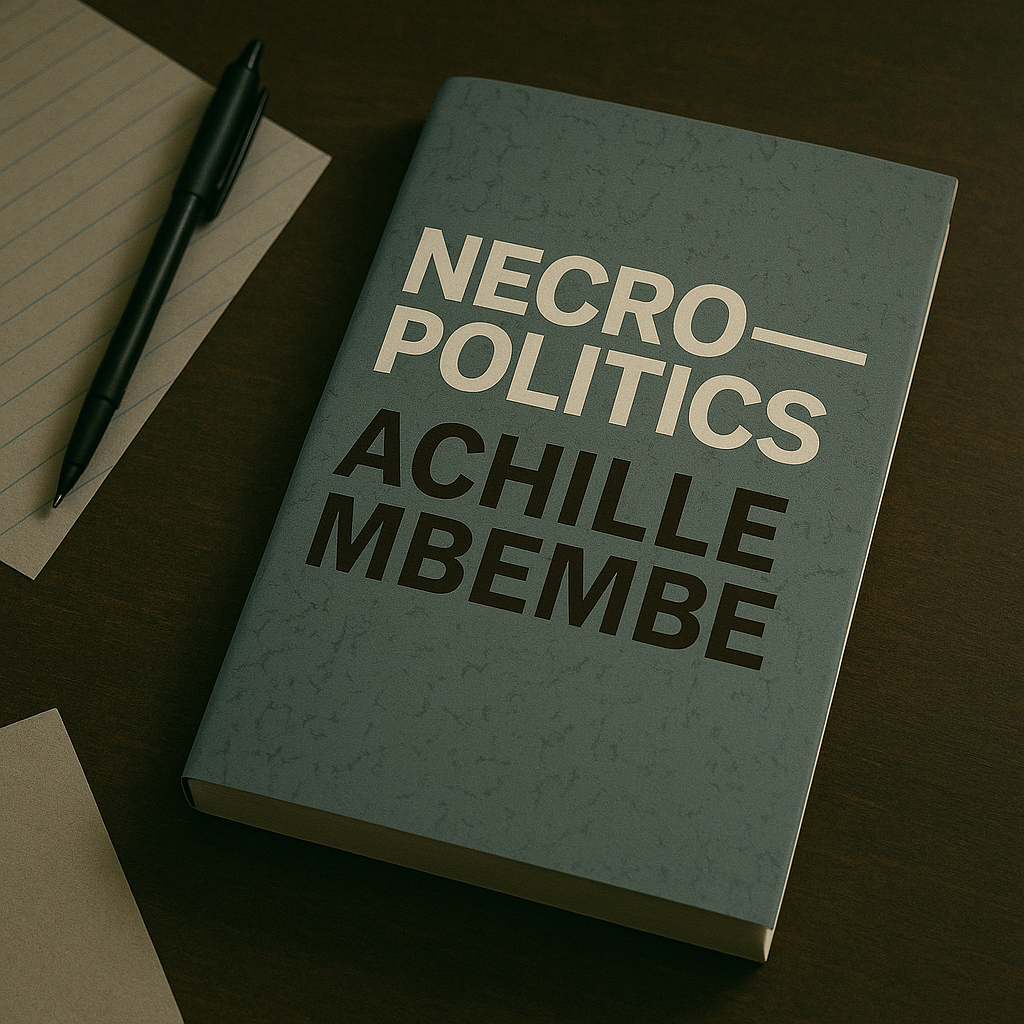Necropolitics
Necropolitics
Achille Mbembe
In Necropolitics (2019), Achille Mbembe, expanding upon a 2003 essay of the same name, extends Michel Foucault’s concept of biopolitics by examining how sovereignty is exercised through the power to dictate who may live and who must die. Mbembe argues that modern forms of domination often operate through the creation of “death-worlds”—spaces such as colonies, occupied territories, and zones of conflict—where populations are subjected to conditions of life akin to death. Specifically, he demonstrates how exceptional powers justified through security rhetoric gradually normalize violence against marginalized communities, creating these "death-worlds." Drawing on examples from colonialism, apartheid South Africa, and the Israeli occupation of Palestine, Mbembe shows how states normalize violence, militarization, and the permanent suspension of law to manage populations.
Unlike biopolitics, which governs life, necropolitics foregrounds death as a political instrument, revealing how racism, war, and occupation justify killing or exposing groups to slow death. Mbembe suggests that modern sovereignty increasingly relies on this logic of necropower, transforming politics itself into the management of death.
Additional resources to further explore Achille Mbembe’s Necropolitics include the podcast “Achille Mbembe’s Necropolitics” and “Achille Mbembe’s Necropolitics (Part 2)”,from Theory & Philosophy, which together offer accessible and insightful guides for understanding how Mbembe theorizes the ways in which political authority is often exercised through the management of death and the exposure of certain populations to conditions of life deemed unworthy of preservation.

